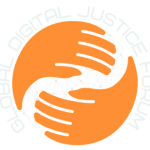The Global Digital Justice Forum, August 2024:
The Global Digital Justice Forum—a group of civil society organizations and networks working on digital rights and justice—would like to share its perspective on the Open Letter to the UN from tech community leaders and internet innovators. Register had reported the letter in July. The Letter expresses reservations that the draft text of the Global Digital Compact (GDC) being negotiated by governments may ‘mandate more centralized governance’ that could be ‘detrimental to the world’s economies and societies’.
We believe that it is vital for the internet technical community to be engaged in the GDC process, and wish to acknowledge the enormous work done by this community to shape the internet into the valuable public resource it is today. However, we believe that proposals emerging from the GDC process underway should not be misconstrued as a government takeover of the ‘successful multistakeholder Internet governance’ approach. This, we feel, maybe both misplaced and alarmist. We wish to make three points.
To begin with, the current draft of the GDC is explicitly grounded in a ‘multistakeholder’ approach, exhorting governments to work ‘with the private sector, civil society, international organizations, the technical and academic communities and all other stakeholders, within their respective roles and responsibilities’ (para 6, GDC Rev 3.0). Indeed, as civil society representing Southern movements and organizations, we would have liked to see much deeper consultation. However, the specific governance proposals in the GDC—pertaining to Internet, data and AI governance—are aligned with the World Summit on the Information Society principles and plan of action; the only touchstone so far on global digital governance.
Secondly, the GDC—when adopted—will be a multilateral agreement that lays down the duty of member states to guarantee the public right of people to equal and full participation in the digital economy and society. Unless the public sector steps up to its rightful duty and role, an “inclusive, open, sustainable, fair, safe and secure digital future for all” (para 4, GDC Rev 3.0) will be no more than a pie in the sky. The unequivocal failure of the market-first model of connectivity—with half the world still offline—is nothing short of a global emergency. An explicit recognition of the public right to connectivity is surely not any ‘governmental takeover’ of digital governance?
Finally, the ‘bottom-up, collaborative and inclusive model of Internet governance that has served the world for the past half century’, referred to in the letter, is aspirational rather than a description of present realities. Internet governance, in practice, has neither been fully inclusive nor adequately representative. The recent Net Mundial+10 outcome document calls out for multistakeholder digital processes to be mindful of power asymmetries between, and the diverse nature and roles of, stakeholders. We endorse this caution, particularly in the context of the de facto centralization of the platform marketplace. We believe the GDC process is a beacon of hope, however small, to remedy the abominable capture of the digital commons and markets by Big Tech.
It is eminently clear that the cyberlibertarian vision of yesteryears is at the root of the myriad problems confronting global digital governance today. Governments are needed in the digital space not only to tackle harm or abuse. They have a positive role to play in fulfilling a gamut of human rights for inclusive, equitable, and flourishing digital societies.
Undoubtedly, this GDC may not be the best we could get. At the same time, we believe that democratic digital governance requires international cooperation and the role of governments in a) mobilizing public investments for foundational public digital goods in all nations and b) moving steadily towards accountable global data and AI governance architectures—a critical agenda whose time is here—for pluralistic digital societies.
The Internet today is not what many who contributed to its development dreamed it would be. The status quo—with corporate self-interest leading the way—is untenable. It is disastrous for people and planet alike. As progressive civil society working to democratize the digital space—hand in hand with the innovators worldwide who hold the internet’s original promise dear—we seek nothing less than a radical departure from the democratic deficit that has come to characterize it.
We do hope the GDC can be one step in that direction.
https://itforchange.net/sites/default/files/2552/Global%20Digital%20Justice%20Forum’s%20rejoinder%20to%20the%20Open%20Letter%20by%20Tech%20Leaders%20and%20Innovators%20to%20the%20United%20Nations%20on%20the%20Global%20Digital%20Compact.pdf
